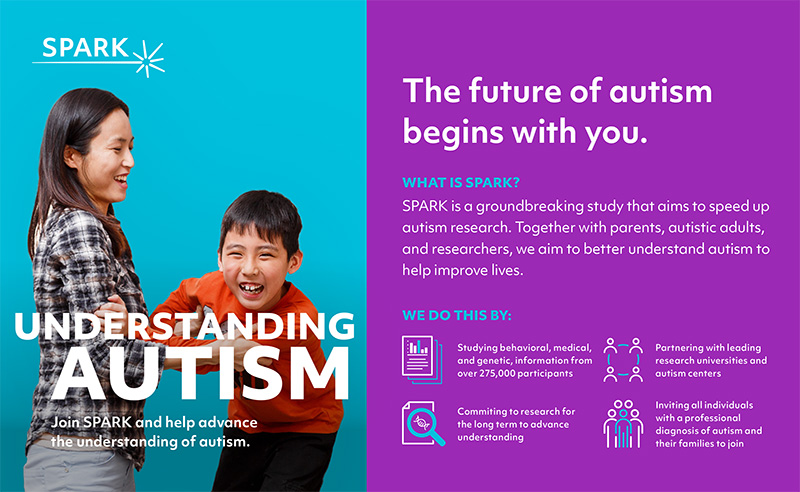Autism occurs equally in people of different races, ethnicities, and income levels, but autism services are not distributed equally, according to research. As a group, children who are Black, Hispanic, Asian-American, or low-income often receive fewer therapies and services for autism.1-2 They also may be diagnosed later, which delays their ability to get help. What can parents do to help overcome those differences?

Linda Fleming McGhee, JD, PsyD, has advice for parents who want to be better advocates for their children at school. McGhee, who is a lawyer and a clinical psychologist in Maryland, tests children and teens for learning problems, advocates for them in school meetings, and has written and given presentations about diversity and racial bias.
Get Diagnosed with Autism Early
Like many psychologists and autism experts, McGhee says that it is important to get an early diagnosis because it leads to early help. Most children are diagnosed with autism spectrum disorder (ASD) after their fourth birthday, although many can be diagnosed before age 2, according to a report from a federal autism committee.3 “Overall, Black and Hispanic children with ASD received evaluations later than white children with ASD,” according to the U.S. Centers of Disease Control and Prevention (CDC).4 A delayed diagnosis can lead to delays in providing services for autism.
“Children of a higher socioeconomic status are more likely to be identified [with a disability] regardless of race, and that disparity has remained constant,” McGhee says. When a Black or Hispanic child is also low-income, “it creates this perfect storm of under-identification and under-assignment of special education services.”
“My number one bit of advice is to get identified [with a disability] as early as possible. Oftentimes children who get the best services are identified before they hit elementary school. So taking advantage of the government-provided services and developmental screenings when your child is young is one of the best things that you can do. If your pediatrician gives you feedback about your child’s development, take that advice seriously. I tell parents, if you have a 2- or 3-year-old, and your child is identified early, you have a much better chance of a better outcome. This advice is for all parents,” she says.
States have intervention programs for children from birth through the preschool years. These programs provide free developmental evaluations and services. Those free services may include special education, preschool, play groups, and speech, occupational, behavioral, and physical therapies. Children can be referred for testing by their doctors, parents, or guardians. If the evaluators find a developmental delay, the child may be eligible for services.
How to Refer a Child for a Developmental Evaluation
To refer children before their third birthday, contact the early intervention agency in your state from this list.
If your child is 3 or older, the CDC offers this advice: “Call any local public elementary school (even if your child does not go to school there) and say: ‘I have concerns about my child’s development and I would like to have my child evaluated through the school system for preschool special education services.’” For students in kindergarten to 12th grade, parents may contact their child’s school to request an evaluation.
A child who receives services before elementary school probably will enter kindergarten with an Individualized Education Program (IEP) already in place. An IEP says what types of services a child will receive and how often.
School officials and parents may not agree on whether a child has a disability, or on what services he or she should receive. What should parents do to increase their chances of being heard?
Collect Information About Your Child
Teachers and school administrators like data, and McGhee urges parents to collect some. Many parents may not be able to take their children to autism specialists for detailed evaluations, or to hire special education lawyers or advocates to push for autism services.
But parents can collect information about their child’s development from their child’s pediatrician and healthcare providers, teachers, and tutors, she says. Parents can take doctor reports and teacher comments to a school meeting, and ask for evaluations and services.
“You have to advocate like hell for your child. There is no other way that I can say it: you have to be persistent. You have to ask for [special education] meetings. You have to bring in any data that you have,” she says.
The Impact of Racial Trauma
That advice is good for all parents, regardless of race or ethnicity, but she had some advice specifically for parents of color.
They may have seen statistics showing that Black and Hispanic students do not do as well as white students. And they may have experienced racial trauma themselves, she says.
Racial trauma or race-based stress is a reaction “to dangerous events and real or perceived experiences of racial discrimination,” according to an article in American Psychologist.5 Some doctors believe that racial trauma is related to Post Traumatic Stress Disorder, but it was not included in the American Psychiatric Association Diagnostic Manual.
Because of their experiences, some parents may be fearful that an autism diagnosis will lead to lower expectations at school. “There is this fear that their children will not have a good outcome, plus the system has shown many parents of color that there is some mistreatment and discrimination,” McGhee says. “Some parents are fearful that their child is going to be stigmatized and warehoused.”
She and other psychologists work with parents “to figure out the best pathway forward for their children.”
“Most of the time the best avenue is to have their children identified with autism spectrum disorder if they need services,” she says. “A lot of clinicians are in the practice of emotionally moving the parents through this process.”
Resources
- To learn more about IEPs, watch a SPARK webinar on Creating Meaningful Individual Education Plans.
- Read the SPARK article, “How to Advocate Successfully at School for Your Child with Autism.”
- Find free information, trainings, and resources about special education, advocacy, and disabilities in your state at the Parent Center Hub, the website of the Center for Parent Information and Resources.
- Watch a SPARK webinar, “Do Implicit Racial Biases Matter in Autism?,” with Brian A. Boyd, Ph.D., director of the Juniper Gardens Children’s Project and associate professor of applied behavioral science at the University of Kansas.
Interested in joining SPARK? Here’s what you should know.
This article has been republished with permission from SPARK. You may view the original article, published on July 20, 2021, at https://sparkforautism.org/discover_article/autism-advocacy-advice/.
Footnotes
- Smith K.A. et al. Pediatrics 145, S35-S46 (2020) PubMed (https://pubmed.ncbi.nlm.nih.gov/32238530/)
- Sturm A. et al. Autism Res. Epub ahead of print (2021) PubMed
- U.S. Interagency Autism Coordinating Committee. NIH Publication No. 19-MH-8012 (2019) Report
- Centers for Disease Control and Prevention. Website. Accessed Jul. 20, 2021.
- Comas-Díaz L. et al. American Psychologist 74, 1-5 (2019) Full Article






[…] range from Most autism intervention studies lack data on race, ethnicity from Spectrum News, Autism Advocacy Advice for Families of Color from Autism Spectrum News, and a video, Struggles of Being Black and Autistic, from the Autism […]
I am glad this is being talked about. My son is being failed by his teacher and other staff. I have decide to pull him from school and homeschool him… again. The school sysem will destroy Black children, and a Black boy on the spectrum doesn’t have a chance in public school. I don’t make the rules, I just have observed how blatantly racist and careless these institutions are with our children. Nothing will change though articles will be written, social awareness screamed at the highest mountains, research anaylzed, but nothing will truly be done. We all know why… You are your best and highest advocate for your child. If you have a child who is autistic, form a Black parenting group and create a support sytem, reach out to your community for resources to assist in socializing and protecting your children because no one else will care.
I have been struggling to find care and help through my autistic daughter providers. Instead I’m suffering and being constantly targeted for advocating for her and since i am great parent and never had any issues or concerns caring for my child I’m being attacked through her non verbal chart as a way of punishment. Such as marking her autism diagnosis as part of being environmental problem. The list is so bigger then that am tired of endlessly being scared and attacked instead of getting the help my daughter needs it feels like we’re being treated like suspects and all this of her previous provider retaliating for speaking up regarding my daughters needs. I’m truly hurt and sadden but it’s got to the point where professionals are called in for favors and betraying to being a staff, changing name and orchestrating to be an ABA at our new service my daughter attends. Is so scary because evaluations are being done without my consent and after googling this individual she’s based on state custody and parent fit to be. Unfortunately, all this is occurring because I am black single mother as hard as it is raising a child with the spectrum is killing me to know that my livelihood and daughters life is at stake with no valid reasoning or any facts to my parenting to be questioned my non verbal daughter is being used to attack me unlawfully without my consent make illegal evaluations. I need help and legal assistance as this being the only recent incident and not the full story that still stands and continues. I am a desperate mother as our lives and wellbeing at stake.